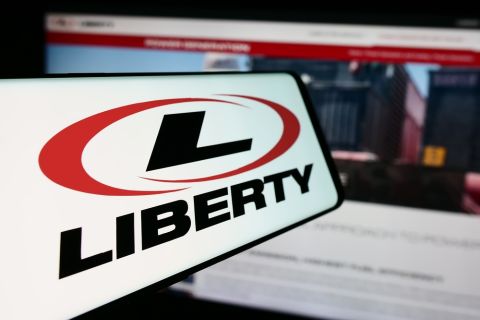The development of shale plays is leading to a manufacturing renaissance, but there is still more work to be done, especially related to infrastructure build-up, according to industry participants. In order to further this development, the American Shale & Manufacturing Partnership (ASMP) was created to bring together a diverse group of organizations and industries focusing on increasing the development of shales along with the American manufacturing supply chain and workforce development.
The ASMP’s charter members will hold a series of national-level discussion series while seeking to identify what policies should be considered to help bring manufacturing back to the U.S. If the ASMP’s first press conference in Washington, D.C., was any indication this series should be very interesting as it led to a discussion between leadership from the manufacturing, petrochemical, oil and gas sectors, and a member of Congress.
Rep. Tim Ryan (D-Ohio), co-chair of the Congressional Manufacturing Caucus, attended the event and asked membership how Congress could help these industries achieve their goals and sustain their global lead in shale production and continue to take advantage of these to the benefit of the domestic economy.
After several members of the partnership mentioned that it would be beneficial for “government to get out of the way,” Ryan said. “What can we do to help streamline these processes? If it’s a bipartisan issue, what can we do to begin a process to solve this problem and get bipartisan support?”
Karen Harbert, president and chief executive of the Institute for 21st Century Energy, U.S. Chamber of Commerce, added that much of this infrastructure is unnecessarily delayed in getting built due to overbearing regulation and approval processes.
“There are huge opportunities in many industries, but we can’t get a lot of things built right now because we need a 21st century permitting process in this country to get infrastructure built. Capital will go elsewhere if we don’t get things built. Congress has looked at this, but we really need to hold the regulators and permitting agencies accountable for a reasonable timeframe. When it takes five-and-a-half years to get a pipeline permit in the U.S. and it takes five-and-a-half weeks in another country, that’s a ‘not open for business’ sign,” she said.
Recommended Reading
Fugro’s Remote Capabilities Usher In New Age of Efficiency, Safety
2024-11-19 - Fugro’s remote operations center allows operators to accomplish the same tasks they’ve done on vessels while being on land.
Liberty Capitalizes on Frac Tech Expertise to Navigate Soft Market
2024-10-18 - Liberty Energy capitalized on its “competitive edge” when navigating a challenging demand environment in third-quarter 2024, CEO Chris Wright said in the company’s quarterly earnings call.
Push-Button Fracs: AI Shaping Well Design, Longer Laterals
2024-11-26 - From horseshoe wells to longer laterals, NexTier, Halliburton and ChampionX are using artificial intelligence to automate drilling and optimize completions.
APA, Palantir Expand Partnership to Deploy New AI Across E&P Operations
2024-09-25 - APA Corp. will introduce new AI capabilities to its oil and gas operations with Palantir Technologies’ Artificial Intelligence Platform (AIP) software.
ZEMA Global to Acquire Morningstar’s Commodity Data Business
2024-09-23 - ZEMA Global Data Corp. is acquiring Morningstar Commodity Data to meet demand for data and analytics prompted by the global energy transition.
Comments
Add new comment
This conversation is moderated according to Hart Energy community rules. Please read the rules before joining the discussion. If you’re experiencing any technical problems, please contact our customer care team.





